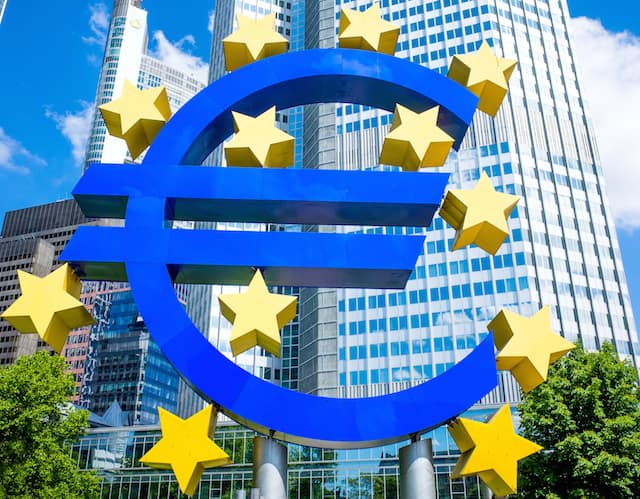FINANCE & CAPITAL | CAPITAL MARKETS

FOCUS: FOREIGN EXCHANGE
The European Central Bank’s adoption of a negative deposit rate for banks’ excess reserves [meaning they charge interest for bank reserves held at the ECB] could have a widespread impact on money markets and corporate cash-management policies. The unprecedented move is intended to weaken the euro and increase inflation (which has been running at about a quarter of the ECB’s target rate of just under 2%). The ultimate goal is to stimulate the economy by making eurozone exports more competitive with a weaker euro and to push banks to lend more—rather than park their funds with the ECB. But it could have immeasurable unintended side effects. And its effectiveness is still a big question mark.
Much will depend on whether or not banks simply pass the impact of negative rates on to their corporate customers. Corporate treasurers looking to avoid paying banks to accept their cash deposits could use currency swaps to switch out of the euro into other safe-haven currencies, such as the Swiss franc or the Japanese yen.
Gerry Barber, regional head of the EMEA cash solutions group at BNY Mellon, told a global clients conference call that the bank has decided not to pass the cost through to its clients for now. “Clients should review the need to keep cash in demand deposits,” Barber says. “They could invest their excess balances in money market accounts or convert euro balances into another currency,” he adds. Of course, money market rates also will be pressured lower.
Multinationals with cash stockpiles in Europe are already seeking ways to put more of it to work—for instance, through share buybacks or M&A. The ECB’s moves could accelerate that trend.
Marvin Barth, European head of FX research at Barclays, says the ECB has begun to turn the tide of inflation expectations, with an “anything it takes” message. “We expect the ECB’s success with inflation expectations also will succeed in driving a trend of euro weakness,” he says. “We have repeatedly highlighted the importance of real interest rate differentials in supporting euro strength.”
The effectiveness of the ECB’s negative deposit rate as a stimulus to the economy is unclear, according to an analysis by sovereign
ratings group DBRS. Lowering the benchmark rate actually has a negative impact on the earnings of some banks, especially in the peripheral countries with large portfolios of floating-rate mortgages, DBRS says. Reserve holdings at the ECB have already declined substantially and have been replaced by an increase in government bonds, it says. Commerzbank, Germany’s second-largest bank, says it will no longer deposit surplus cash at the ECB.
The ECB also announced a package of $520 billion of special loans to banks for new lending to companies and households. “Targeted asset-backed purchases may do more to invigorate demand for corporate lending,” according to DBRS. The banks would bundle loans to small companies, for example, and sell them to the ECB. ECB president Mario Draghi signaled the possibility of some future form of quantitative easing, whereby the central bank would purchase privately created asset-backed securities if inflation remains weak.



